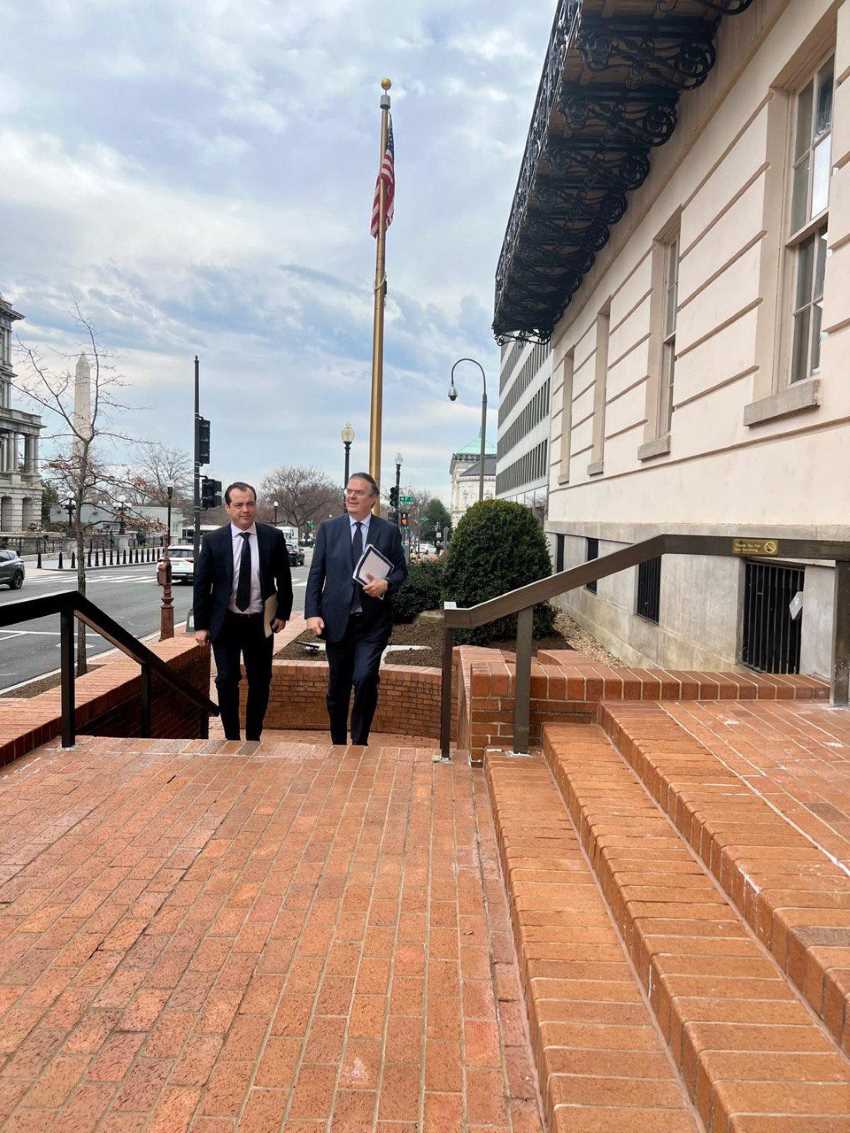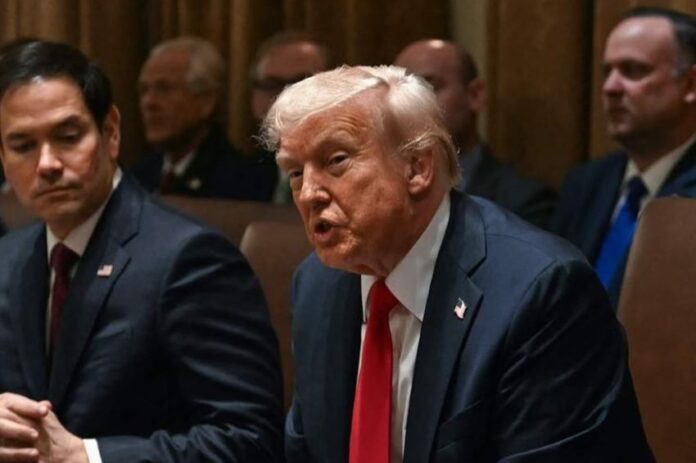A day after suggesting that Mexico and Canada might receive another month’s reprieve from tariffs, U.S. President Donald Trump on Thursday indicated that his proposed tariffs will indeed go into effect on March 4.
On Wednesday, upon being questioned about whether or not he was going to delay tariffs on Mexico and Canada, he said he was not, but then, after remarks about fentanyl coming through Mexico and Canada, went on to mention that on April 2, “the tariffs will go on,” appearing to suggest that Mexico and Canada had until that date to avoid tariffs.
However, by Thursday morning, Trump clarified on his social media accounts that Canada and Mexico tariffs would go into effect on March 4, “as scheduled.”
Mexican President Claudia Sheinbaum responded shortly thereafter, saying during her morning press conference that she was confident that ongoing talks would allow Mexico to avoid the extra duties. She added that she hoped to talk to Trump in the coming days.
As of 4:30 p.m. Thursday, Trump appeared to be holding his ground on the March 4 date. An anonymous White House official told the news agency Reuters Thursday that “there are ongoing discussions with the Chinese, Mexico and Canada. The official also said, “We’ve gotten a good handle on the migration issue, but there are still concerns on the other issue of fentanyl deaths.”
The sweeping 25% tariffs on imports from Mexico and Canada had been paused on Feb. 3 for one month. Sheinbaum said Trump postponed the tariffs after she and the U.S. president had “reached a series of agreements” involving security and trade. One result of those agreements involved Mexico sending its troops to the Mexico-U.S. border to patrol on the Mexican side and to collaborate with U.S. authorities.
But since then, the Trump administration has sent mixed messages about whether the duties would take effect once the delay expired. More confusion was sown Wednesday and Thursday.
The U.S. president wrote that illicit drugs “are still pouring into our Country from Mexico and Canada at very high and unacceptable levels.”
President Donald Trump responds to question about tariffs on Canada and Mexico amid drop in border crossings #nationalnews #donaldtrump #tariffs #canada #mexico pic.twitter.com/8oFdcLWob1
— ABC 7 Amarillo (@ABC7Amarillo) February 26, 2025
The press conference that helped sow confusion Wednesday.
“We cannot allow this scourge to continue to harm the USA, and therefore, until it stops, or is seriously limited, the proposed TARIFFS scheduled to go into effect on MARCH FOURTH will, indeed, go into effect, as scheduled,” Trump added.
This contradicted statements made the day before, on Wednesday, by White House National Economic Council director Kevin Hassett, who spoke in an interview with CNBC.
Discussing Trump’s first full Cabinet meeting of his second term on Wednesday with the news network, Hassett said the president would not make a decision on tariff policies until he evaluated a study to be started April 1.
However, White House officials told the media afterward that the April 1 was for Trump’s “reciprocal tariffs.” Trump has said that the U.S. will impose tariffs on any country that imposes tariffs on the U.S.
Meanwhile, Mexico sent a trade delegation to Washington, D.C., including Economy Minister Marcelo Ebrard, Thursday, supposedly to stave off tariffs. The status of those meetings are not currently clear.

China trade muddies the waters
The point of contention goes beyond the issue of drugs. The U.S. government has accused Mexico of allowing Chinese products to pass into the United States, letting Chinese manufacturers to, in effect, use Mexico as a back door to avoid U.S tariffs on China.
Sheinbaum has long claimed that this is not true, saying in November that “the idea that (Chinese) products are entering through Mexico is false.”
Last week, Mexico and the U.S. established a bilateral working group to discuss trade and tariff policies. The Trump administration has said that among the conditions it wants met in order to avoid imposing tariffs on Mexico is that Mexico levy taxes on Chinese imports.
Fortune magazine reported that Mexico “has ramped up efforts to crack down on cheap imports from China,” though Sheinbaum has framed it as “a move to support domestic industries” rather than a step to appease Trump.
In Thursday morning’s Truth Social post, Trump said that China, which already faces 10% U.S. tariffs on its products, “will likewise be charged an additional 10% Tariff.”
He also said that his plan to impose reciprocal tariffs on foreign nations that have duties on U.S. imports “will remain in full force and effect.”
With reports from El Universal, Milenio, El País, Bloomberg News, The New York Times and CNN
